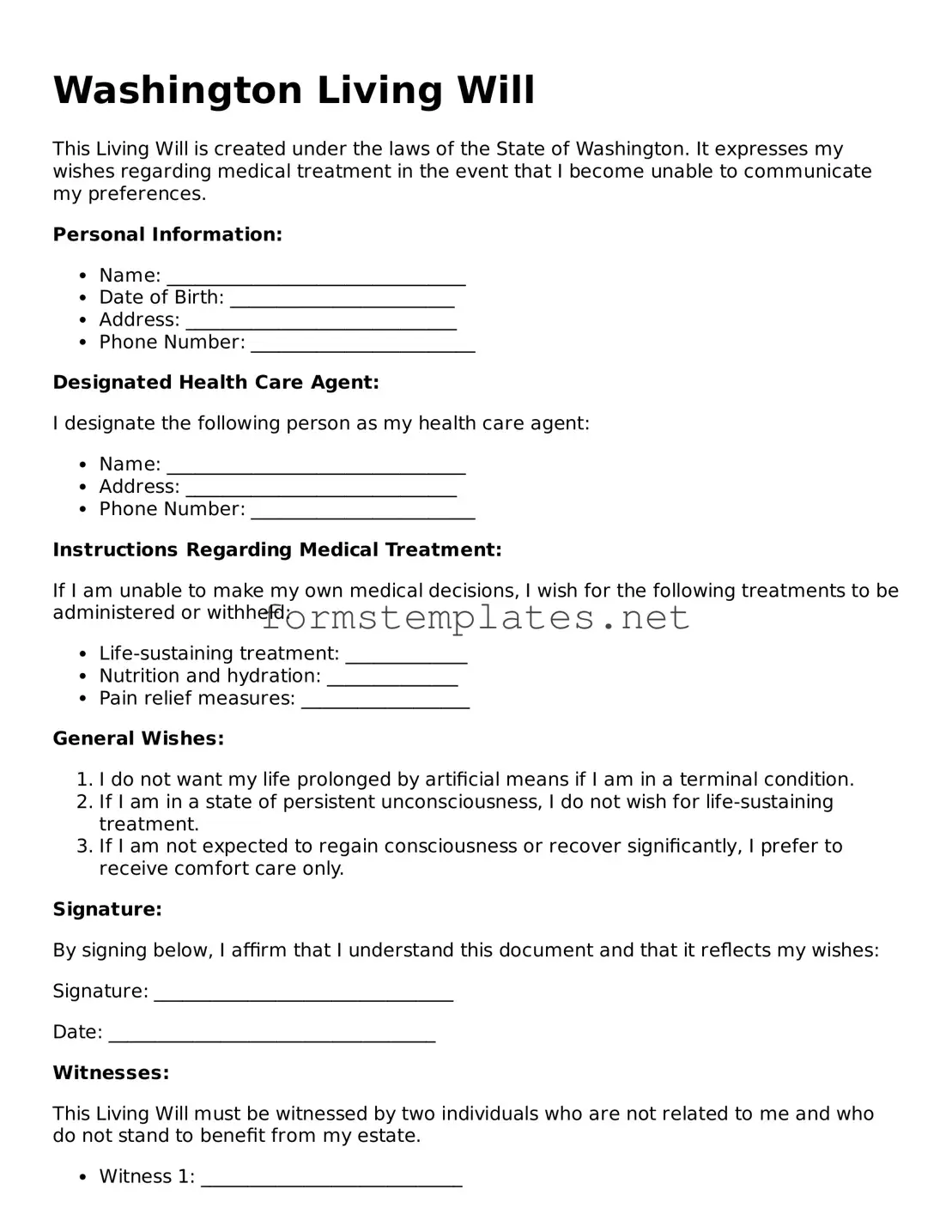What is a Washington Living Will?
A Washington Living Will is a legal document that allows you to express your wishes regarding medical treatment in the event that you become unable to communicate those wishes yourself. It specifically addresses your preferences for life-sustaining treatment, such as resuscitation, mechanical ventilation, and feeding tubes, should you be diagnosed with a terminal condition or be in a persistent vegetative state.
Who should create a Living Will?
Anyone over the age of 18 who wishes to ensure their medical treatment preferences are known should consider creating a Living Will. This document is particularly important for individuals with serious health conditions, those undergoing major surgery, or anyone who wants to have their healthcare decisions documented clearly.
How do I create a Living Will in Washington?
To create a Living Will in Washington, follow these steps:
-
Download the Washington Living Will form or obtain it from a legal professional.
-
Carefully read the instructions and complete the form, ensuring you clearly state your wishes.
-
Sign the document in the presence of two witnesses or a notary public to validate it.
-
Keep the original document in a safe place and provide copies to your healthcare provider, family members, and anyone involved in your care.
What are the witnessing requirements for a Living Will in Washington?
In Washington, your Living Will must be signed by you in the presence of two witnesses or a notary public. Witnesses cannot be:
-
Related to you by blood or marriage.
-
Beneficiaries of your estate.
-
Employees of your healthcare provider.
This ensures that the document is created under fair circumstances and that your wishes are respected.
Can I change or revoke my Living Will?
Yes, you can change or revoke your Living Will at any time, as long as you are mentally competent. To do so, simply create a new Living Will that clearly states your updated wishes, or you can write a statement revoking the previous document. Be sure to inform your healthcare provider and anyone who has a copy of the original document about the changes.
What happens if I do not have a Living Will?
If you do not have a Living Will and become unable to communicate your medical preferences, healthcare providers will make decisions based on what they believe is in your best interest. This could lead to treatments you may not want. Having a Living Will ensures that your wishes are known and respected during critical times.
Is a Living Will the same as a Durable Power of Attorney for Health Care?
No, a Living Will and a Durable Power of Attorney for Health Care serve different purposes. A Living Will outlines your specific medical treatment preferences, while a Durable Power of Attorney for Health Care designates someone to make healthcare decisions on your behalf if you are unable to do so. Many people choose to create both documents to ensure comprehensive coverage of their healthcare wishes.
How does a Living Will affect my medical care?
A Living Will provides clear guidance to your healthcare providers regarding your wishes for treatment. It helps avoid confusion and ensures that your preferences are honored, especially in critical situations. Medical professionals are legally required to follow the instructions outlined in your Living Will, provided it is valid and applicable to your circumstances.
Where should I keep my Living Will?
Store your Living Will in a safe but accessible location. Inform your family members, close friends, and healthcare provider where the document is kept. Consider keeping a copy in your medical records or with your primary care physician to ensure it is readily available when needed.

